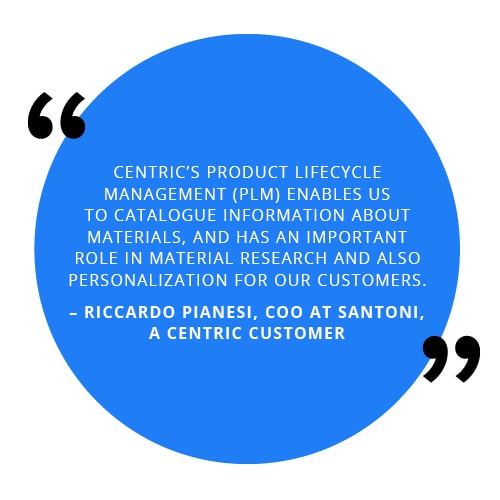4 Essential Sustainability Trends for Fashion and Retail: Forecast #4

Sustainability Forecast #4: Personalization
Born in the era of digitally nomadic lifestyles and with the ability to order anything imaginable from your phone, today’s current and up and coming generations of customers expect new standards of service and customization with the products they buy.
Indeed, personalization has become a ‘must-have’ for retailers in recent years, and from customized furniture to individualized handbags, niche companies are experiencing an increasing demand for one-off pieces. According to research by Epsilon and GBH, 80% of online shoppers are more likely to make a purchase if retailers offer personalization.
This indicates another facet of the sustainability movement, with customers who have rejected mass-produced sameness in favour of unique, high-quality pieces that provide superior craftsmanship and a long-lasting emotional connection or expression of individuality.
For segments such as LGBTQ+ customers, or people who don’t fall within ‘typical’ size ranges, the opportunity to buy customized or tailored clothing that is not created for the masses can be an attractive proposition. In general, customers may be willing to wait a little longer for highly customized products, feeling more special commissioning their own original designs.
However, adopting this trend with this level of customization can mean extremely long and complex production processes and timelines for companies, with more room for error and more potential for faulty products to damage brand reputation. Brands need to be able to handle the complex product data and supply chain practices associated with personalized products, and effectively integrate the supply chain from design concept to retail and customer service, to give customers a truly special buying experience.

Digital innovation is therefore crucial for getting closer to the customer to offer additional, highly tailored services. A central hub for all product-related information, provided by digital transformation tools such as Product Lifecycle Management (PLM), makes it easier to manage the complex supply chains and multiple data sets associated with customization and personalization, and enables better management of new and existing suppliers, with the option to connect suppliers directly to the system to facilitate greater collaboration.
This maximizes potential for varying production processes; a slower process from some products can be running in parallel with traditional faster processes for others.
Empowered by new PLM technology, digitally native brand AMARO has pioneered an e-commerce direct-to-consumer business model that minimizes waste by ‘co-authoring’ product lines with customers, reacting to data on consumer desires rather than pushing trends on them and integrating this data throughout the supply chain for fast, agile product development.
Yet whether your brand decides to offer a single element of customization or specializes in creating fully bespoke products, it’s important to embrace digital tools that enable you to handle supply chains and customer communication in a way that is truly open, quality-focused and personal.
Find out how digital tools can keep your sustainability and product development goals on track by downloading the full sustainability report.








